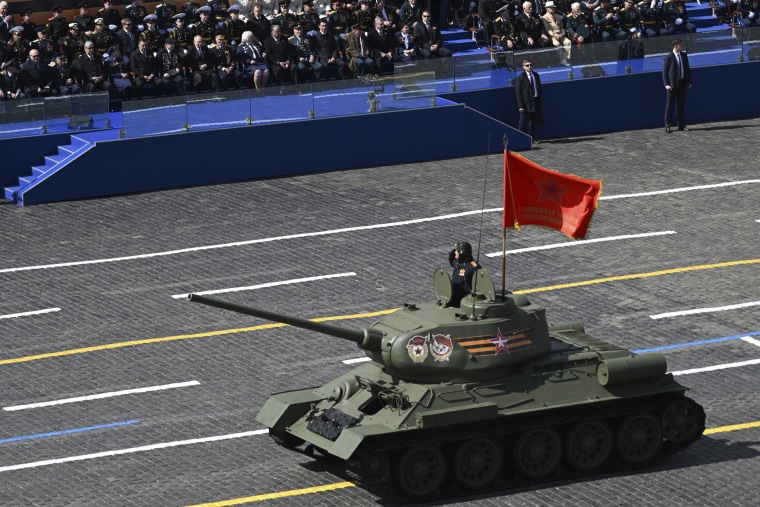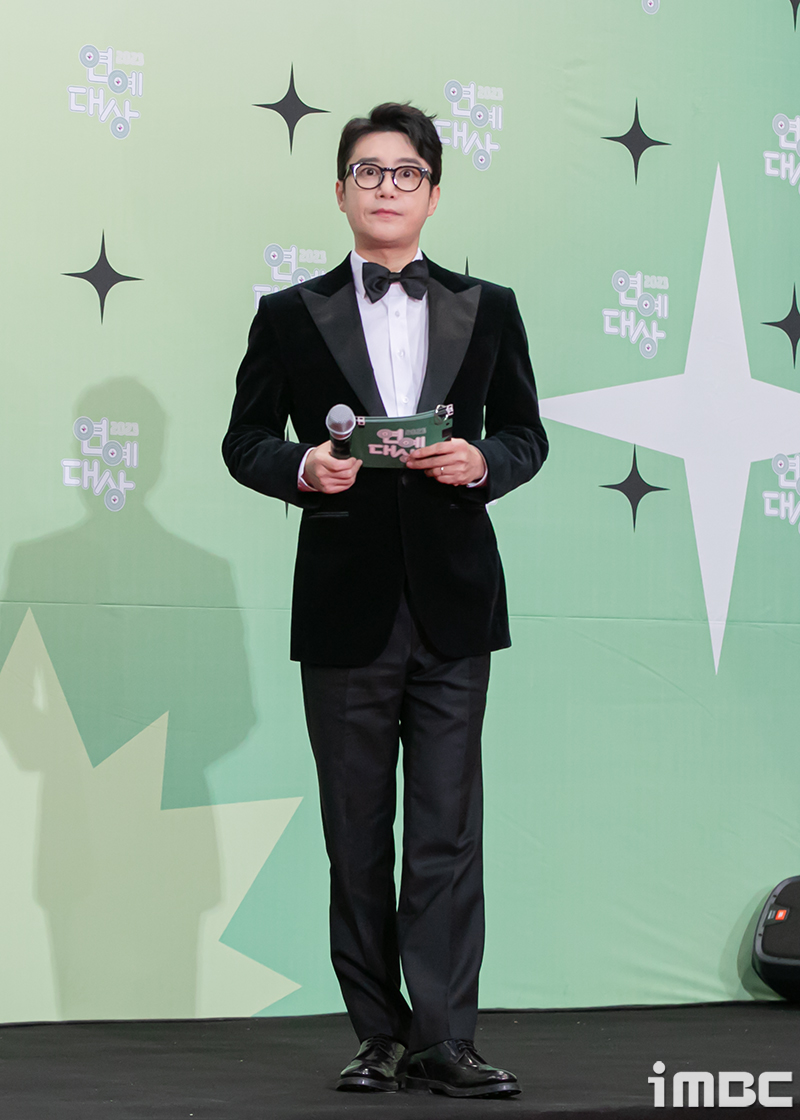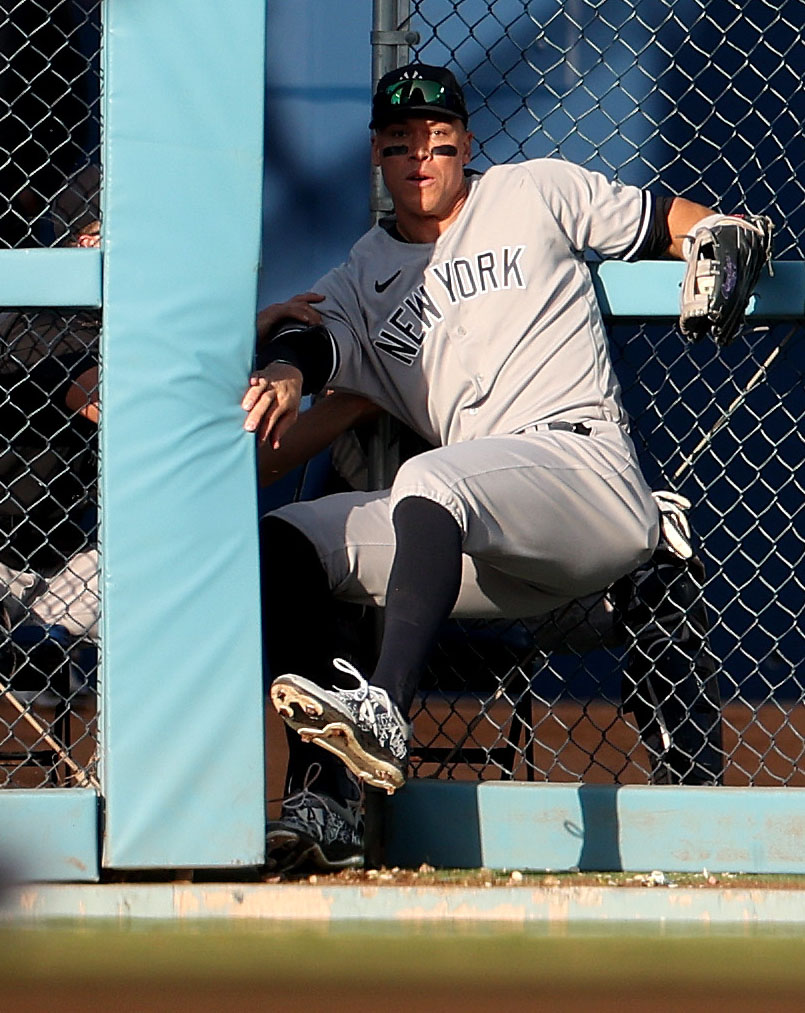Victory Day 2024: Putin's Parade And Russia's Military Posture

Table of Contents
The Spectacle of the Victory Day Parade
The Victory Day Parade in Moscow is a meticulously orchestrated spectacle designed to project an image of Russian military strength and national pride. Its significance extends far beyond a simple military display; it's a carefully crafted piece of political theater with both domestic and international audiences in mind.
Showcase of Military Hardware
The parade is a showcase of Russian military hardware, designed to impress both domestic and international observers. The types and quantities of weapons systems displayed provide valuable insights into the state of Russia's military capabilities. This year's parade likely included:
- Advanced weaponry: Expect displays of Russia's latest tanks, such as the T-14 Armata, showcasing advancements in armor and firepower.
- Hypersonic missiles: The parade will almost certainly feature hypersonic missile systems, highlighting Russia's pursuit of advanced military technology. These systems represent a significant technological leap and pose a potential threat to Western defenses.
- Drones and UAVs: The increasing role of drones in modern warfare will likely be emphasized, showcasing Russia’s capabilities in this evolving area of military technology.
- Modernized air defense systems: Russia is likely to display its latest air defense systems, aiming to project an image of enhanced protection against aerial threats.
- A large number of troops and equipment: The sheer scale of the parade—the number of troops marching, tanks rolling, and aircraft flying overhead—is intended to overwhelm viewers and demonstrate Russia's military might. The precise numbers involved are significant indicators of the country's military readiness.
The symbolic significance of showcasing specific weaponry cannot be overstated. For example, the prominent display of hypersonic missiles is a clear message to the West, signaling Russia’s determination to maintain a powerful military. The parade is a potent tool for projecting this national strength and reinforcing the image of a resurgent Russia. Keywords like military hardware, Russian military technology, weapons display, and parade equipment are all crucial for understanding the context of this display.
Propaganda and Domestic Messaging
The Victory Day Parade is a powerful tool for Russian propaganda, aiming to reinforce national narratives and consolidate domestic support for the government.
- National strength and resilience: The parade showcases Russia's military capabilities, aiming to boost national morale and emphasize the country's strength and resilience in the face of challenges.
- Historical significance: The parade's connection to the Soviet victory in World War II is carefully leveraged to evoke a sense of national pride and historical continuity, linking the current regime to a glorious past.
- Shaping public opinion: The meticulously planned event is designed to influence public opinion both domestically and internationally, creating a narrative that reinforces the Kremlin's desired image.
The parade's messaging is designed to foster a sense of patriotism and national unity, deflecting attention from internal challenges and emphasizing Russia's continued importance on the world stage. The keywords Russian propaganda, nationalism, and military messaging are key to understanding this aspect of the event.
Russia's Current Military Posture
Understanding Russia's current military posture requires considering the ongoing war in Ukraine and the country's broader military modernization efforts.
The War in Ukraine and its Impact
The war in Ukraine has significantly impacted Russia's military resources and capabilities.
- Military losses: The conflict has resulted in substantial losses of personnel and equipment for the Russian military, impacting its overall combat effectiveness. Precise figures remain debated but these losses are undeniable.
- Deployment of troops and equipment: The ongoing conflict has necessitated the deployment of a significant portion of Russia’s military forces and equipment, straining its resources and potentially impacting its readiness for other commitments.
- Shifting military strategy: The war in Ukraine has forced Russia to adapt its military strategy, leading to changes in tactics, training, and equipment priorities.
The Victory Day Parade must be seen in the context of these ongoing losses and strategic shifts. The contrast between the parade's image of military might and the realities of the war in Ukraine is striking and reveals much about Russia's current situation. Keywords like Ukraine conflict, military losses, and Russian military strategy are essential for analyzing this aspect.
Military Modernization and Spending
Despite the challenges posed by the war in Ukraine and Western sanctions, Russia continues to invest in military modernization.
- Military budget: Russia maintains a significant military budget, despite economic pressures, reflecting its commitment to modernizing its armed forces.
- Impact of Western sanctions: Western sanctions have undoubtedly impacted Russia's ability to acquire certain advanced technologies and components, hindering its modernization efforts. This impact is likely to be long-lasting.
- Long-term implications: Russia's long-term military modernization plans, despite facing sanctions, suggest a continued commitment to maintaining a powerful military.
The parade serves as a demonstration of Russia's commitment to military modernization, even in the face of significant economic and geopolitical challenges. Keywords such as military spending, military modernization, and sanctions impact provide essential context.
Geopolitical Implications of the Parade
The Victory Day Parade carries significant geopolitical implications, sending messages to both the West and neighboring countries.
Message to the West
The parade is a powerful message directed at NATO and other Western powers.
- Military threat: The display of advanced weaponry serves as a demonstration of Russia's military capabilities and its willingness to employ them, sending a clear message to potential adversaries.
- International relations: The parade impacts international relations, potentially escalating tensions or solidifying existing divisions between Russia and the West.
- Potential future conflicts: The message sent by the parade impacts the likelihood of future conflicts, influencing the decision-making processes of other nations.
The interpretation of the parade's message will vary widely among different countries and factions. Keywords like NATO, geopolitics, international relations, and military threat are essential here.
Impact on Regional Stability
The parade's impact on regional stability, especially in Eastern Europe and the former Soviet republics, is significant.
- Regional stability: The military display could serve to destabilize the region, increasing tensions among neighboring countries.
- Former Soviet republics: The parade may influence the relationships between Russia and the former Soviet republics, particularly those with ambitions for closer ties with the West.
- Responses from neighboring countries: Neighboring countries are likely to respond to the military demonstration in ways that reflect their own geopolitical interests and security concerns.
The parade’s message resonates differently in the region and its interpretation will vary significantly based on the historical relationships and current political dynamics. Keywords like regional stability, Eastern Europe, and former Soviet republics help contextualize this issue.
Conclusion
The Victory Day parade in Moscow is more than a ceremonial event; it’s a powerful statement reflecting Russia’s military capabilities and strategic ambitions. The display of military hardware, combined with the underlying political messaging, offers significant insights into Russia's current military posture and its geopolitical intentions. Analyzing both the spectacle and its underlying context helps us better understand the implications of Russia’s actions for international relations and global security. For further insights into the complexities of the Victory Day Parade Russia and its global impact, continue to follow reputable news sources and geopolitical analysis. Understanding the nuances of the Victory Day Parade Russia is crucial for comprehending the evolving geopolitical landscape.

Featured Posts
-
 Jessica Simpsons Music And Tv Future A Comeback On The Horizon
May 11, 2025
Jessica Simpsons Music And Tv Future A Comeback On The Horizon
May 11, 2025 -
 Finding Fun On Your Next Flight Tips And Tricks
May 11, 2025
Finding Fun On Your Next Flight Tips And Tricks
May 11, 2025 -
 And
May 11, 2025
And
May 11, 2025 -
 Aaron Judges Historic Start Matching The Greats Of Mlb
May 11, 2025
Aaron Judges Historic Start Matching The Greats Of Mlb
May 11, 2025 -
 15 Years Later Jessica Simpsons Highly Anticipated Concert Performance
May 11, 2025
15 Years Later Jessica Simpsons Highly Anticipated Concert Performance
May 11, 2025
